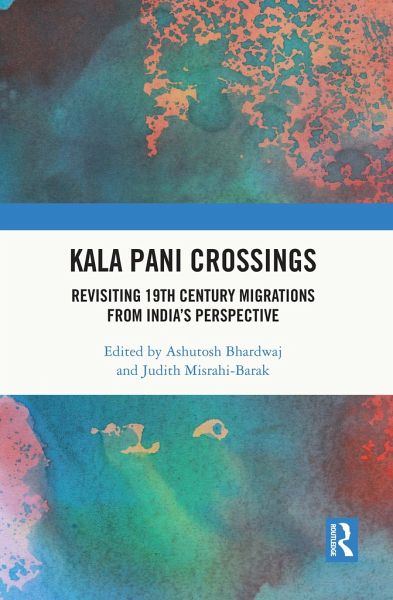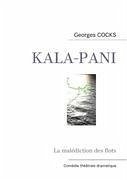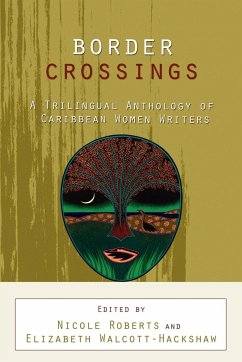
Kala Pani Crossings
Revisiting 19th Century Migrations from India's Perspective
Herausgeber: Bhardwaj, Ashutosh; Misrahi-Barak, Judith
Versandkostenfrei!
Versandfertig in 1-2 Wochen
169,99 €
inkl. MwSt.
Weitere Ausgaben:

PAYBACK Punkte
85 °P sammeln!
When used in India, the term Kala pani refers to the cellular jail in Port Blair, where the British colonisers sent a select category of freedom fighters. In the diaspora it refers to the transoceanic migration of indentured labour from India to plantation colonies across the globe from the mid-19th century onwards. This volume discusses the legacies of indenture in the Caribbean, Reunion, Mauritius, and Fiji, and how they still imbue our present. More importantly, it draws attention to India and raises new questions: doesn't one need, at some stage, to wonder why this forgotten chapter of Ind...
When used in India, the term Kala pani refers to the cellular jail in Port Blair, where the British colonisers sent a select category of freedom fighters. In the diaspora it refers to the transoceanic migration of indentured labour from India to plantation colonies across the globe from the mid-19th century onwards. This volume discusses the legacies of indenture in the Caribbean, Reunion, Mauritius, and Fiji, and how they still imbue our present. More importantly, it draws attention to India and raises new questions: doesn't one need, at some stage, to wonder why this forgotten chapter of Indian history needs to be retrieved? How is it that this history is better known outside India than in India itself? What are the advantages of shining a torch onto a history that was made invisible? Why have the tribulations of the old diaspora been swept under the carpet at a time when the successes of the new diaspora have been foregrounded? What do we stand to gain from resurrecting these histories in the early 21st century and from shifting our perspectives? A key volume on Indian diaspora, modern history, indentured labour, and the legacy of indentureship, this co-edited collection of essays examines these questions largely through the frame of important works of literature and cinema, folk songs, and oral tales, making it an artistic enquiry of the past and of the present. It will be of great interest to scholars and researchers of world history, especially labour history, literature, postcolonial studies, cultural studies, diaspora studies, sociology and social anthropology, Indian Ocean studies, and South Asian studies.













